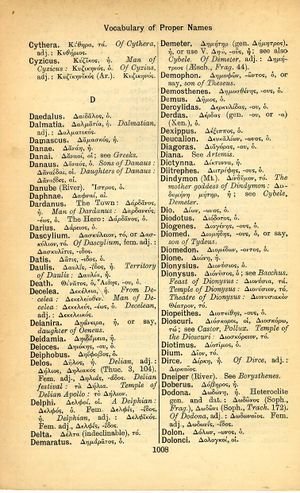Dio: Difference between revisions
From LSJ
πρὸ τελευτῆς μὴ μακάριζε μηδένα, καὶ ἐν τέκνοις αὐτοῦ γνωσθήσεται ἀνήρ → Count no man blessed before his end; a man will be recognized in his offspring. (Ecclesiasticus 11:28)
(3_4) |
m (Text replacement - "}}]]" to "}}]]") |
||
| Line 1: | Line 1: | ||
{{WoodhouseENELnames | {{WoodhouseENELnames | ||
|Text=[[File:woodhouse_1008.jpg|thumb | |Text=[[File:woodhouse_1008.jpg|thumb | ||
|link={{filepath:woodhouse_1008.jpg | |link={{filepath:woodhouse_1008.jpg}}]]Δίων, -ωνος, ὁ. | ||
}} | }} | ||
{{Gaffiot | {{Gaffiot | ||

